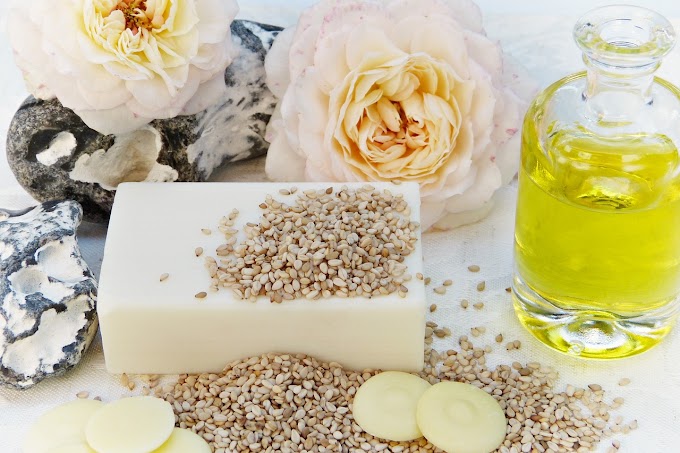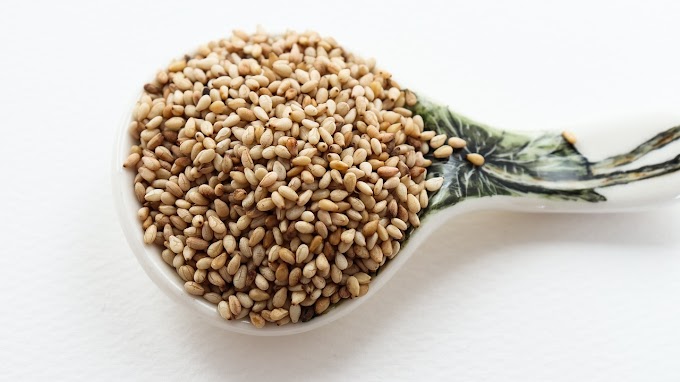Introduction
In a world dominated by modern medicine and pharmaceuticals, there is a growing renaissance in the use of herbal medicine and remedies. The ancient practice of harnessing the healing power of nature has gained momentum in recent years as people seek alternative and holistic approaches to healthcare. Herbal medicine, also known as botanical medicine or phytotherapy, relies on the use of plants and plant extracts to prevent and treat various ailments. This article delves into the rich history, principles, and contemporary relevance of herbal medicine, exploring the ways in which the power of nature is harnessed for healing.Historical Roots of Herbal Medicine
The use of plants for medicinal purposes dates back thousands of years, transcending cultures and continents. Indigenous communities across the globe developed an intimate understanding of their local flora, recognizing plants with therapeutic properties. Ancient Chinese, Ayurvedic, Native American, and Greco-Roman civilizations all had their unique herbal traditions, documenting the healing properties of plants in early texts.One of the earliest known medical texts, the Ebers Papyrus from ancient Egypt, contains information on various herbal remedies used for different ailments. Similarly, the Greek physician Hippocrates, often referred to as the "father of medicine," emphasized the importance of nature in healing, stating, "Let food be thy medicine and medicine be thy food."
Principles of Herbal Medicine
The principles of herbal medicine revolve around the belief that the body has an innate ability to heal itself, and plants play a crucial role in supporting and enhancing this natural healing process. Herbalists often focus on treating the root cause of an ailment rather than just alleviating symptoms. This holistic approach considers the interconnectedness of the body, mind, and spirit.Herbal medicine encompasses a wide range of practices, including the use of teas, tinctures, poultices, and essential oils. The active compounds within plants, such as alkaloids, flavonoids, and terpenes, are believed to contribute to their therapeutic effects. Herbalists carefully select and combine plants based on their traditional uses and scientific evidence to create formulations that address specific health concerns.

Common Herbs and Their Healing Properties
Echinacea (Echinacea purpurea): Traditional Use: Native American tribes used echinacea to treat infections and wounds.Modern Application: Widely used to boost the immune system and prevent or shorten the duration of colds.
Turmeric (Curcuma longa): Traditional Use: A staple in Ayurvedic medicine, turmeric has been used for its anti-inflammatory properties.
Modern Application: Research supports its effectiveness in managing conditions like arthritis and inflammatory disorders.
Ginger (Zingiber officinale): Traditional Use: Ancient Chinese and Indian cultures used ginger for digestive issues.
Modern Application: Known for its anti-nausea and anti-inflammatory effects, ginger is commonly used for gastrointestinal relief.
Peppermint (Mentha piperita): Traditional Use: Ancient Egyptians and Romans used peppermint for indigestion.
Modern Application: Peppermint oil is used to alleviate symptoms of irritable bowel syndrome (IBS) and relieve headaches.
Chamomile (Matricaria chamomilla): Traditional Use: Chamomile has a long history of use for its calming and sedative properties.
Modern Application: Often consumed as a tea to promote relaxation and improve sleep.

Contemporary Relevance and Scientific Validation
While herbal medicine has ancient roots, its contemporary relevance is evident in the growing body of scientific research supporting the efficacy of certain herbs. For example, the World Health Organization (WHO) estimates that 80% of the world's population relies on traditional medicine, primarily herbal remedies, for their primary healthcare needs. Additionally, numerous studies have explored the pharmacological properties of various plants, validating their traditional uses.St. John's Wort (Hypericum perforatum): Traditional Use: Used for centuries to treat depression and anxiety.
Scientific Validation: Some studies suggest that St. John's Wort may be effective in treating mild to moderate depression.
Garlic (Allium sativum): Traditional Use: Employed for its antimicrobial properties.
Scientific Validation: Research supports garlic's role in lowering blood pressure and reducing the risk of cardiovascular diseases.
Ginkgo Biloba: Traditional Use: Used in traditional Chinese medicine for cognitive enhancement.
Scientific Validation: Ginkgo biloba has been studied for its potential to improve memory and cognitive function, particularly in older adults.
Aloe Vera (Aloe barbadensis miller): Traditional Use: Ancient Egyptians referred to aloe vera as the "plant of immortality" and used it for skin ailments.
Scientific Validation: Aloe vera is recognized for its wound-healing properties and is commonly used in skincare products.
Cannabis (Cannabis sativa): Traditional Use: Ancient cultures used cannabis for various medicinal and ritualistic purposes.
Scientific Validation: Ongoing research explores the therapeutic potential of cannabinoids for conditions such as chronic pain, epilepsy, and nausea.
Challenges and Considerations
Despite the growing acceptance of herbal medicine, challenges and considerations persist. The lack of standardized dosages and formulations, potential herb-drug interactions, and limited regulation pose challenges to the integration of herbal remedies into mainstream healthcare. It is crucial for individuals to consult with qualified herbalists or healthcare professionals before incorporating herbal treatments, especially if they are already taking prescription medications.Furthermore, the sustainable harvesting and cultivation of medicinal plants are essential to preserve biodiversity and prevent overharvesting. The increasing demand for herbal remedies has raised concerns about the depletion of certain plant species, emphasizing the need for ethical and environmentally conscious practices in the herbal industry.
The Future of Herbal Medicine
As interest in holistic and natural approaches to healthcare continues to rise, the future of herbal medicine appears promising. Integrative medicine, which combines conventional and complementary therapies, is gaining traction, with many healthcare practitioners recognizing the value of herbal remedies. Research institutions are increasingly investigating the therapeutic potential of plants, leading to a deeper understanding of their mechanisms of action.Additionally, the empowerment of individuals to take control of their health and well-being is contributing to the popularity of herbal medicine. The accessibility of information through the internet has enabled people to educate themselves about traditional remedies and make informed choices about their healthcare.
Conclusion
Herbal medicine, rooted in ancient traditions and guided by the wisdom of nature, continues to play a significant role in healthcare. The power of nature, harnessed through the use of medicinal plants, offers a holistic and complementary approach to conventional medicine. While challenges exist, ongoing scientific research and a growing awareness of sustainable practices are paving the way for a future where herbal medicine is seamlessly integrated into mainstream healthcare.As individuals explore the vast world of herbal remedies, it is essential to approach them with respect, understanding, and a commitment to both personal and environmental well-being. The journey into the power of nature is not just a rediscovery of ancient wisdom but a continual exploration of the profound healing potential that the natural world provides.
FAQ's
What is herbal medicine, and how does it differ from conventional medicine?Herbal medicine, also known as botanical medicine or phytotherapy, is a holistic approach to healthcare that relies on the use of plants and plant extracts for preventive and therapeutic purposes. Unlike conventional medicine, which often targets specific symptoms, herbal medicine aims to address the root cause of ailments by supporting the body's natural healing processes.
Are herbal remedies scientifically proven to be effective?
Yes, many herbal remedies have undergone scientific scrutiny, with research validating their traditional uses. For example, St. John's Wort has shown promise in treating mild to moderate depression, while garlic has demonstrated cardiovascular benefits. However, it's important to note that not all herbal remedies have been extensively studied, and individual responses may vary.
Can I use herbal medicine alongside prescription medications?
It's crucial to consult with a healthcare professional before combining herbal remedies with prescription medications. Some herbs may interact with drugs, affecting their efficacy or causing adverse effects. Your healthcare provider can provide personalized guidance based on your specific health conditions and medications.
How do I choose the right herbal remedy for my health concerns?
Choosing the right herbal remedy involves understanding your specific health needs, consulting with a qualified herbalist or healthcare professional, and considering the available scientific evidence. Herbalists often tailor remedies to individual needs, taking into account factors such as existing health conditions, allergies, and lifestyle.
Are there any side effects associated with herbal medicine?
While herbal remedies are generally considered safe, they can have side effects or interact with certain medications. Common side effects may include allergic reactions, digestive issues, or interactions with prescription drugs. It's important to start with low doses, monitor your body's response, and seek professional guidance if you experience any adverse effects.
Can pregnant or breastfeeding women use herbal remedies?
Pregnant and breastfeeding women should exercise caution when using herbal remedies, as not all herbs are safe during these periods. Some herbs may pose risks to the developing fetus or nursing infant. It is advisable for pregnant or breastfeeding individuals to consult with a healthcare professional before using any herbal supplements.
How can I ensure the sustainability of herbal medicine practices?
To promote sustainability, consider purchasing herbs from reputable sources that adhere to ethical harvesting and cultivation practices. Look for certifications such as "organic" or "wildcrafted." Additionally, supporting local herbalists and businesses that prioritize sustainable sourcing contributes to the conservation of medicinal plant species.
Is herbal medicine regulated, and how can I trust the quality of herbal products?
Regulatory standards for herbal products vary by country. In the United States, for example, the Dietary Supplement Health and Education Act (DSHEA) governs the regulation of herbal supplements. Look for products with third-party certifications, such as the United States Pharmacopeia (USP) or NSF International, to ensure quality and purity.
Can children use herbal remedies?
Children can use herbal remedies, but it's essential to use caution and consult with a healthcare professional. Dosages may need to be adjusted based on the child's age and weight. Some herbs may not be suitable for children, and their safety during pregnancy should also be considered if the child's mother is pregnant or breastfeeding.
How long does it take for herbal remedies to show results?
The timeline for experiencing results with herbal remedies varies depending on the individual, the nature of the health concern, and the specific herb used. Some people may experience relief quickly, while others may need more time. Consistency in use, proper dosage, and lifestyle factors all contribute to the effectiveness of herbal remedies. If there is no improvement or if symptoms worsen, it's advisable to seek professional guidance.







